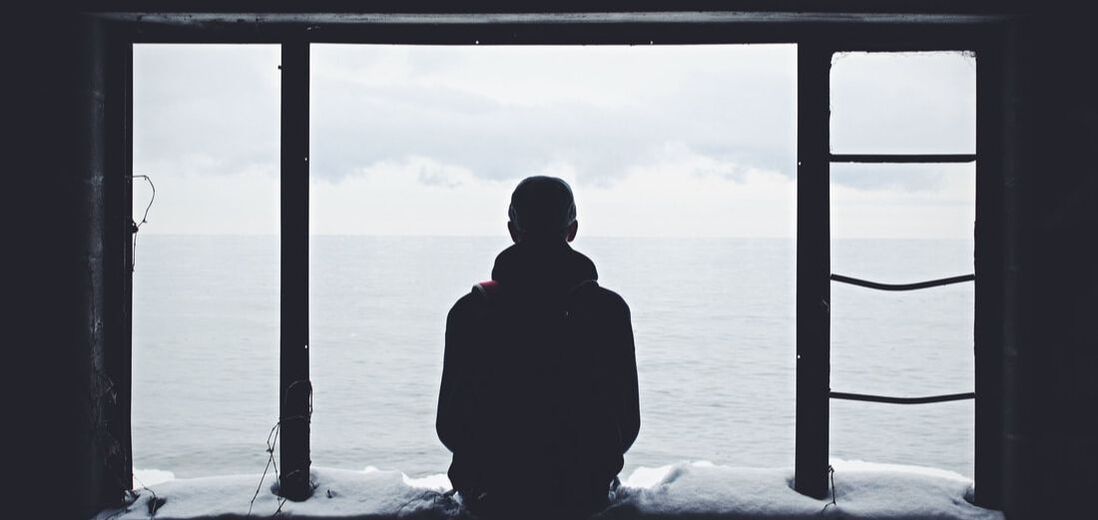|
It’s been a little over a year since our country, or world for that matter, changed dramatically. The infiltration of this pandemic has been second to none. Over 400,000 lives have been lost in the US, and that’s just as a result of Covid-19, never mind all of the lives lost to other illnesses. These deaths and an environment filled with lockdowns, masks, social distancing, perpetual hand washing, and fear have changed the landscape of mourning the loss of a loved one. I can’t imagine what it might have been like attempting to organize myself and my family back in 2007 in order to face the death of my husband amid a pandemic. The idea of having to plan a funeral, shiva and navigate daily life while mourning seems insurmountable in our current state of the world. And yet, people seem to be successfully navigating grief during the pandemic. Missing Closure and Waiting on GriefAccording to Jody Michael Armata, owner/director of Northshore Funeral Services in Shorewood, WI, “funerals are all over the board,”. However, “people who want to view their loved ones seem to be wanting to do that for a longer period of time—sometimes hours.” This may be due to the fact that often our loved ones who perish from Covid are not allowed to have visitors and thus often people die alone with hospital staff by their side. Sitting with the person for a period of time, can be comforting and helps provide an essential element of the 7 stages of grief—closure. Mr. Armata also went on to explain that, since the pandemic, all funeral directors have been asking people to hold off until Spring/Summer so gatherings can be outside in addition to solely inside—but how far into the future can one wait? Does waiting deter the mourning process, leading to people having difficulty processing the stages of grief? Do people, for example, move into the anger stage of mourning and stay there longer? Personally speaking, I think I was in this stage quite long enough even without facing a pandemic back in 2007. What Funerals Look Like During the PandemicCremations have skyrocketed, and preliminary meetings with Mr. Armata are held mainly by phone. From his perspective, missing the face-to-face contact with family members seeking out his services is unfortunate but necessary in this current environment. Though he prefers to meet with family members in person for the planning stages of a funeral, he admits technology has played a critical and probably permanent role in his industry. “People don’t seem to mind the Zoom meetings and funerals” he stated. However, he finds himself not only allaying people’s fear about the funeral process itself, but educating people on the use of technology during a funeral. Many older people don’t do well with technology so Jody finds himself or a grandchild assisting in this regard. My own kids, along with their cousins, planned a Zoom meeting just after their grandmother died last fall to share the many funny “Alice stories”. This brought them comfort during a time they either couldn’t attend her gravesite service due to avoiding airlines, or sitting in the car watching from afar while her casket was lowered into the earth. In addition to the funeral services themselves, friends and family of the deceased often show their love and care through food. Unfortunately, catering has all but disappeared into boxed meals, wrapped individually in layers of plastic wrap, disposable utensils, and delivered by staff practically dressed in hazmat suits! And unfortunately, it is simply what has to be right now. Warm, comforting casseroles cooked with love cannot be dropped off at the bereaving family's home, for fear of safety. Processing the Loss of a Loved One During the Pandemic“In my case, my family and I got to see my late husband. We were lucky….we had to dress like Martians but we got to see him and say good-bye. This was huge for my family and me. His biggest concern was that we not be ‘mad’ at him for leaving us. He died 2 hours later.” Cheryl and her family tested positive for Covid as well. And while her late husband was cremated (not atypical with a Covid diagnosis), the family was in a strict quarantine. According to Cheryl, the celebration of life is being planned for the summer, when everyone will celebrate with a drink, share stories, be outside, and continue the grieving process. Right now, she and her family are grieving quietly, and her late husband’s ashes are safely with her in their home. This brings her some closure and peace, although she will have to watch the Packers become the NFC Champions from her home---alone. Cheryl feels fortunate in that she was able to donate many of her late husband’s medications back to other patients that will benefit from them, and she is fortunate to have such a strong family support system. This is how she is getting through the stages of grief. She is working full time and she admits this is a benefit and a curse. Her attention span is shorter and so is her patience. She admits to shutting down at certain points and that her “fuse” is shorter with people who are complaining. These are all very normal reactions during the stages of grief. Yet, during our phone conversation her voice was strong with occasional breaks, silence, taking a breath, and tears. Cheryl has command of her environment, and is weathering the great changes that have occurred in life both personally and as a result of Covid. So one year later, everything has changed, including our concept of grief during a pandemic. And yet, nothing has changed. Funeral directors continue to organize, advise, comfort, process, and bring to completion the funeral process—albeit from in front of a computer screen. Their value is immeasurable in regards to loss in this current state we live in. People like Cheryl are adapting to their environment, thinking outside the box, and progressing through the ever-critical stages of grief successfully in order to push forward and live life. My heart goes out to these funeral directors who are a large group of essential workers in more ways than one, and to the families who have lost loved ones in this last year. May 2021 be less traumatic and may the lost loves’ memories in our lives be a blessing.
1 Comment
|
Categories |


 RSS Feed
RSS Feed